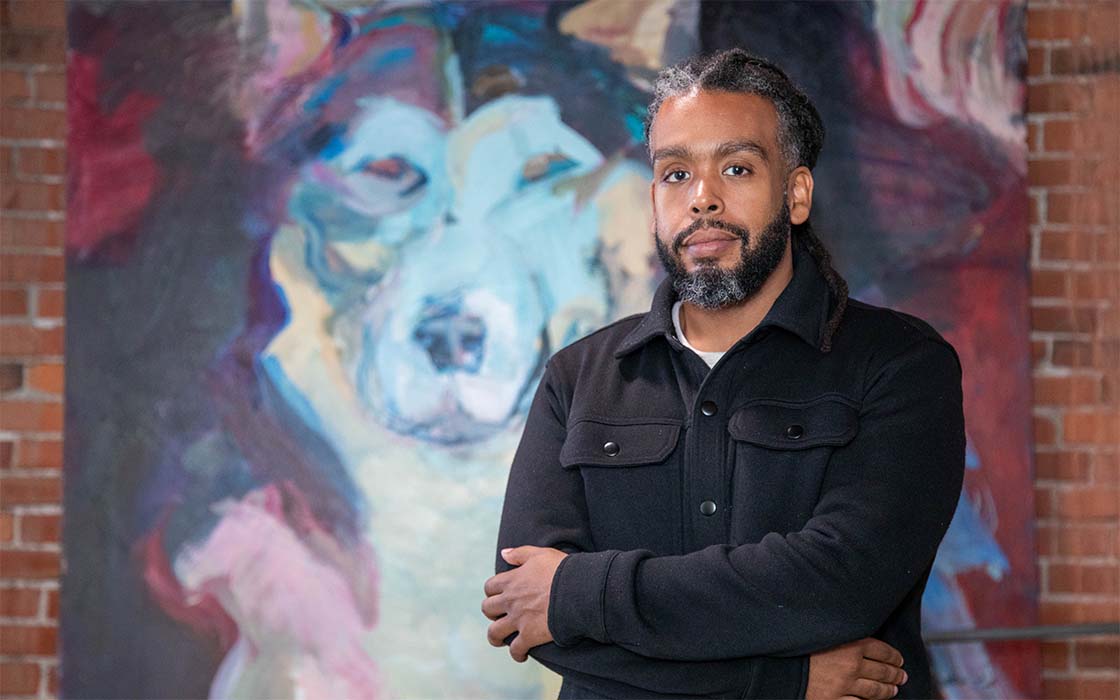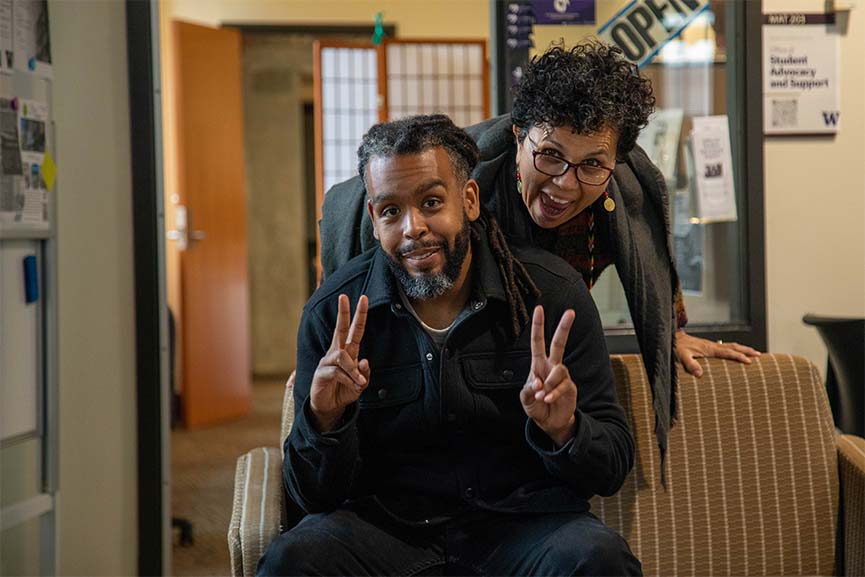
A Sense of Belonging
Serving students who were part of the foster care system, Meraf Geberehiwot works to create a sense of security, belonging and acceptance.
One part of UW Tacoma’s mission is to provide access to higher education to anyone who wants to attend college. Fulfilling that mission involves providing the tools and resources for students to be successful. The Passport Champions program is an example of this commitment.
The program serves UW Tacoma students who were part of the foster care system as well as students who have experienced homelessness. “I work with these students to identify barriers to their success, create care plans and establish goals,” said Champions Program Advisor Meraf Geberehiwot.
At every level of our educational system, completion rates for youth who were in foster care or who experienced homelessness are substantially lower than rates for youth as a whole. By some estimates, less than 10% of people raised in foster care complete any education beyond high school. Less than 5% graduate from a four-year college, compared to 25% of those who were not in foster care.
Geberehiwot started in his role in October 2022. During the past year he has had the opportunity to build deep connections with students in the program. “Many of the students haven’t had a consistent place to live, weren’t able to go to the same school year after year or didn’t have adults they could trust,” he said. “They’ve spent a large part of their lives in survival mode.”
With those challenges, the pivot to college life can be daunting. There are many reasons students may end up not completing their educational goals, but colleges are recognizing they must create conditions where students can build relationships, feel supported, valued, safe, and secure to be themselves. Higher education administrators call that supportive environment a "sense of belonging."
A goal of the Champions program is to help create that sense of belonging. The first part of this process involves identifying UW Tacoma students who were foster youth or who experienced homelessness. Students can self-identify on the UW Tacoma admission application but there is also a statewide initiative called Washington Passport Network that collects this information and makes it available via a portal to colleges and universities.
Eligible students receive scholarships through a program administered by the Washington State Achievement Council (WSAC) called Passport to Careers. These scholarships cover tuition, fees, books, housing, transportation and some personal expenses.
Funds provided by WSAC are important, but so, too, is the human connection. Geberehiwot works with individual students and the campus’s Office of Student Advocacy & Support to get students what they need, whether that’s emergency housing at Court 17 or connecting them to The Pantry to get food and other supplies. “This is a big part of what I do. But the most vital part, at least in terms of helping students to persevere to graduation, is creating a safe space where they feel comfortable and welcome,” he said.

These efforts are paying off. The number of students in the program has increased by almost two-thirds, rising from 26 in fall of 2022, when Geberehiwot started, to 42 a year later. And from winter 2023 to winter 2024, the number of students "stopping out" or "dropping out" — not returning to college whether temporarily or permanently — has declined by 50%.
This life-changing work has not only the support of UW Tacoma staff and WSAC funding for individual students, it has also attracted grant funding. Support from the East Seattle Foundation will allow UW Tacoma to expand the program's scope. A Foundation grant will help Champions students obtain meaningful employment post-college through the hiring of a career coach. The coach will create a program of workshops, obtain internships, provide one-on-one advising, and reach out to the community to create networking connections with potential employers.
Geberehiwot graduated from UW in Seattle with a degree in comparative religion. Born and raised in Seattle, his first job out of college found him at a nonprofit running a summer program for K-5 students. “I fell in love with the work,” he said. “I felt like there was so much purpose in what I was doing.”
Geberehiwot stayed in the nonprofit world as an after-school program coordinator for middle school and high school students, several of whom had been in the foster care system, before switching over to become a clinical case manager at CHI Franciscan (now Virginia Mason Franciscan Health). “I ultimately decided to get back into a field that I am passionate about, working with young people,” he said.
“Higher education is innately more hopeful and optimistic," said Geberehiwot. "Plus, I feel like my own lived experience, both personally and professionally, makes me a good match for this position. I grew up low-income, in public housing with a single mother who herself was a recent immigrant. That’s not the same as living in foster care or not having a place to live, but I can relate to needing a sense of security, belonging and acceptance.”



